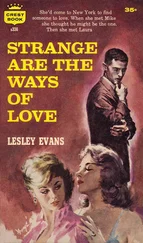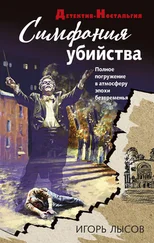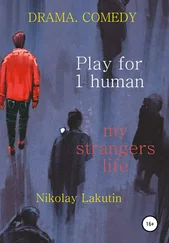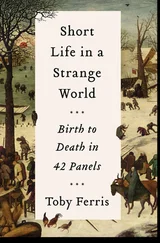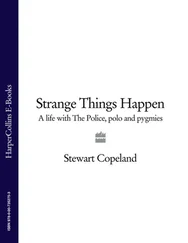Douglas Hofstadter - I Am a Strange Loop
Здесь есть возможность читать онлайн «Douglas Hofstadter - I Am a Strange Loop» весь текст электронной книги совершенно бесплатно (целиком полную версию без сокращений). В некоторых случаях можно слушать аудио, скачать через торрент в формате fb2 и присутствует краткое содержание. Жанр: Прочая документальная литература, на английском языке. Описание произведения, (предисловие) а так же отзывы посетителей доступны на портале библиотеки ЛибКат.
- Название:I Am a Strange Loop
- Автор:
- Жанр:
- Год:неизвестен
- ISBN:нет данных
- Рейтинг книги:4 / 5. Голосов: 1
-
Избранное:Добавить в избранное
- Отзывы:
-
Ваша оценка:
- 80
- 1
- 2
- 3
- 4
- 5
I Am a Strange Loop: краткое содержание, описание и аннотация
Предлагаем к чтению аннотацию, описание, краткое содержание или предисловие (зависит от того, что написал сам автор книги «I Am a Strange Loop»). Если вы не нашли необходимую информацию о книге — напишите в комментариях, мы постараемся отыскать её.
I Am a Strange Loop — читать онлайн бесплатно полную книгу (весь текст) целиком
Ниже представлен текст книги, разбитый по страницам. Система сохранения места последней прочитанной страницы, позволяет с удобством читать онлайн бесплатно книгу «I Am a Strange Loop», без необходимости каждый раз заново искать на чём Вы остановились. Поставьте закладку, и сможете в любой момент перейти на страницу, на которой закончили чтение.
Интервал:
Закладка:
With this situation, we can make a more realistic and more generous comparison to Bertrand Russell (yet another analogy!). Chantal, unlike a dog, does not merely see meaningless patterns of light on the screen; she effortlessly sees people and events — the “easy” meaning of the patterns. But there is a second level of meaning that takes the people and events for granted, a meaning transmitted by an analogy between events, and it’s that higher level of meaning that eludes Chantal. In much the same way, Gödel’s higher level of meaning, mediated by his mapping, his marvelous analogy, eluded Bertrand Russell. From what I have read about Russell, he never saw the second level of meaning of formulas of PM. In a certain sad sense, the good Lord never learned to read his own holy books.
Pickets at the Posh Shop
As I suggested above, your recently returned roving sweetheart might well hear an extra level of meaning while listening to Aimable chastise Pomponnette. Thus a play or film can carry levels of meaning that the author never dreamt of. Let’s consider, for example, the little-known 1931 play The Posh Shop Picketeers, written by social activist playwright Rosalyn Wadhead (ever hear of her?). This play is about a wildcat strike called by the workers at Alf and Bertie’s Posh Shop (I admit, I never did figure out what they sold there). In this play, there is a scene where shoppers approaching the store’s entrance are exhorted not to cross the picket line and not to buy anything in the store (“Alf and Bertie are filthy dirty! Please don’t cross our Posh Shop pickets! Please cross over to the mom-and-pop shop!”). In the skilled hands of our playwright, this simple situation led to a drama of great tension. But for some reason, just before the play was to open, the ushers in the theater and the actors in the play got embroiled in a bitter dispute, as a result of which the ushers’ union staged a wildcat strike on opening night, put up picket lines, and beseeched potential playgoers not to cross their lines to see The Posh Shop Picketeers .
Obviously, given this unanticipated political context, the lines uttered by the actors inside the play assumed a powerful second meaning for viewers in the audience, an extra level of meaning that Rosalyn Wadhead never intended. In fact, the picketing Posh Shop worker named “Cagey”, who disgustedly proclaims, after a brash matron pushes her aside and arrogantly strides into Alf and Bertie’s upscale showroom, “Anyone who crosses the picket line in front of Alf and Bertie’s Posh Shop is scum”, was inevitably heard by everyone in the audience (which by definition consisted solely of people who had crossed the picket line outside the theater) as saying, “Anyone who crossed the picket line in front of this theater is scum”, and of course this amounted to saying, “Anyone who is now sitting in this audience is scum”, which could also be heard as “You should not be listening to these lines”, which was the diametric opposite of what all the actors, including the one playing the part of Cagey, wanted to tell their audience, whose entry into the theater they so much appreciated, given the ushers’ hostile picket line.
But what could the actors do about the fact that they were unmistakably calling their deeply appreciated audience “scum” and insinuating that no one should even have been there to hear these lines? Nothing. They had to recite the play’s lines, and the analogy was there, it was blatant and strong, and therefore the ironic, twisting-back, self-referential meaning of Cagey’s line, as well as of many others in the play, was unavoidable. Admittedly, the self-reference was indirect — mediated by an analogy — but that did not make it any less real or strong than would “direct” reference. Indeed, what we might be tempted to call “direct” reference is mediated by a code, too — the code between words and things given to us by our native language (Malagasy, Icelandic, etc.). It’s just that that code is a simpler one (or at least a more familiar one). In sum, the seemingly sharp distinction between “direct” reference and “indirect” reference is only a matter of degree, not a black-and-white distinction. To repeat, analogy has force in proportion to its precision and visibility.
Prince Hyppia: Math Dramatica
Well, so much for Rosalyn Wadhead and the surprise double-edgedness of the lines in The Posh Shop Picketeers, admittedly a rather obscure work. Let’s move on to something completely different. We’ll talk instead about the world-famous play Prince Hyppia: Math Dramatica, penned in the years 1910–1913 by the celebrated British playwright Y. Ted Enrustle (surely you’ve heard of him !). Fed up with all the too-clevah-by-hahf playsabout-plays that were all the rage in those days, he set out to write a play that would have nothing whatsoever to do with playwriting or acting or the stage. And thus, in this renowned piece, as you doubtless recall, all the characters are strictly limited to speaking about various properties, from very simple to quite arcane, of whole numbers. How could anyone possibly get any further from writing a play about a play? For example, early on in Act I, the beautiful Princess Bloppia famously exclaims, “7 times 11 times 13 equals 1001!”, to which the handsome Prince Hyppia excitedly retorts, “Wherefore the number 1001 is composite and not prime!” Theirs would seem to be a math made in heaven. (You may now groan.)
But it’s in Act III that things really heat up. The climax comes when Princess Bloppia mentions an arithmetical fact about a certain very large integer g, and Prince Hyppia replies, “Wherefore the number g is saucy and not prim!” (It’s a rare audience that fails to gasp in unison when they hear Hyppia’s most math-dramatical outburst.) The curious thing is that the proud Prince seems to have no idea of the import of what he is saying, and even more ironically, apparently the playwright, Y. Ted Enrustle, didn’t either. However, as everyone today knows, this remark of Prince Hyppia asserts — via the intermediary link of a tight analogy — that a certain long line of typographical symbols is “unpennable” using a standard set of conventions of dramaturgy that held, way back in those bygone days. And the funny thing is that the allegedly unpennable line is none other than the proclamation that the actor playing Prince Hyppia has just pronounced!
As you can well imagine, although Y. Ted Enrustle was constantly penning long lines of symbols that adhered to popular dramaturgical conventions (after all, that was his livelihood!), he’d never dreamt of a connection between the natural numbers (whose peculiar properties his curious characters accurately articulated) and the humble lines of symbols that he penned for his actors to read and memorize. Nonetheless, when, nearly two decades later, this droll coincidence was revealed to the playgoing public in a wickedly witty review entitled “On Formerly Unpennable Proclamations in Prince Hyppia: Math Dramatica and Related Stageplays (I)”, authored by the acerbic young Turko-Viennese drama critic Gerd Külot (I’ll skip the details here, as the story is so well known), its piercing cogency was immediately appreciated by many, and as a result, playgoers who had read Külot’s irreverent review became able to rehear many of the famous lines uttered in Prince Hyppia: Math Dramatica as if they were not about numbers at all, despite what Y. Ted Enrustle had intended, but were direct (and often quite biting) comments about Y. Ted Enrustle’s play itself!
And thus it wasn’t long before savvy audiences were reinterpreting the droll remarks by the oddball numerologist Qéé Dzhii (a character in Prince Hyppia: Math Dramatica who had gained notoriety for her nearly nonstop jabbering about why she preferred saucy numbers to prim numbers) as revealing, via allusions that now seemed hilariously obvious, why she preferred dramatic lines that were unpennable (using the dramaturgical conventions of the day) to lines that were pennable. Drama lovers considered this new way of understanding the play too delicious for words, for it revealed Prince Hyppia to be a play-about-a-play (with a vengeance!), although most of the credit for this insight was given to the brash young foreign critic rather than to the venerable elder playwright.
Читать дальшеИнтервал:
Закладка:
Похожие книги на «I Am a Strange Loop»
Представляем Вашему вниманию похожие книги на «I Am a Strange Loop» списком для выбора. Мы отобрали схожую по названию и смыслу литературу в надежде предоставить читателям больше вариантов отыскать новые, интересные, ещё непрочитанные произведения.
Обсуждение, отзывы о книге «I Am a Strange Loop» и просто собственные мнения читателей. Оставьте ваши комментарии, напишите, что Вы думаете о произведении, его смысле или главных героях. Укажите что конкретно понравилось, а что нет, и почему Вы так считаете.



